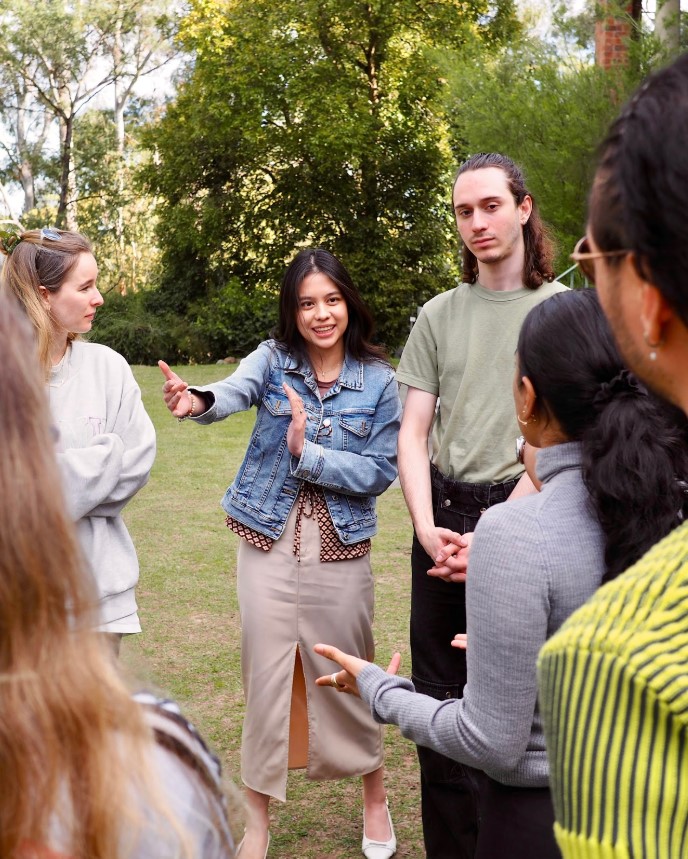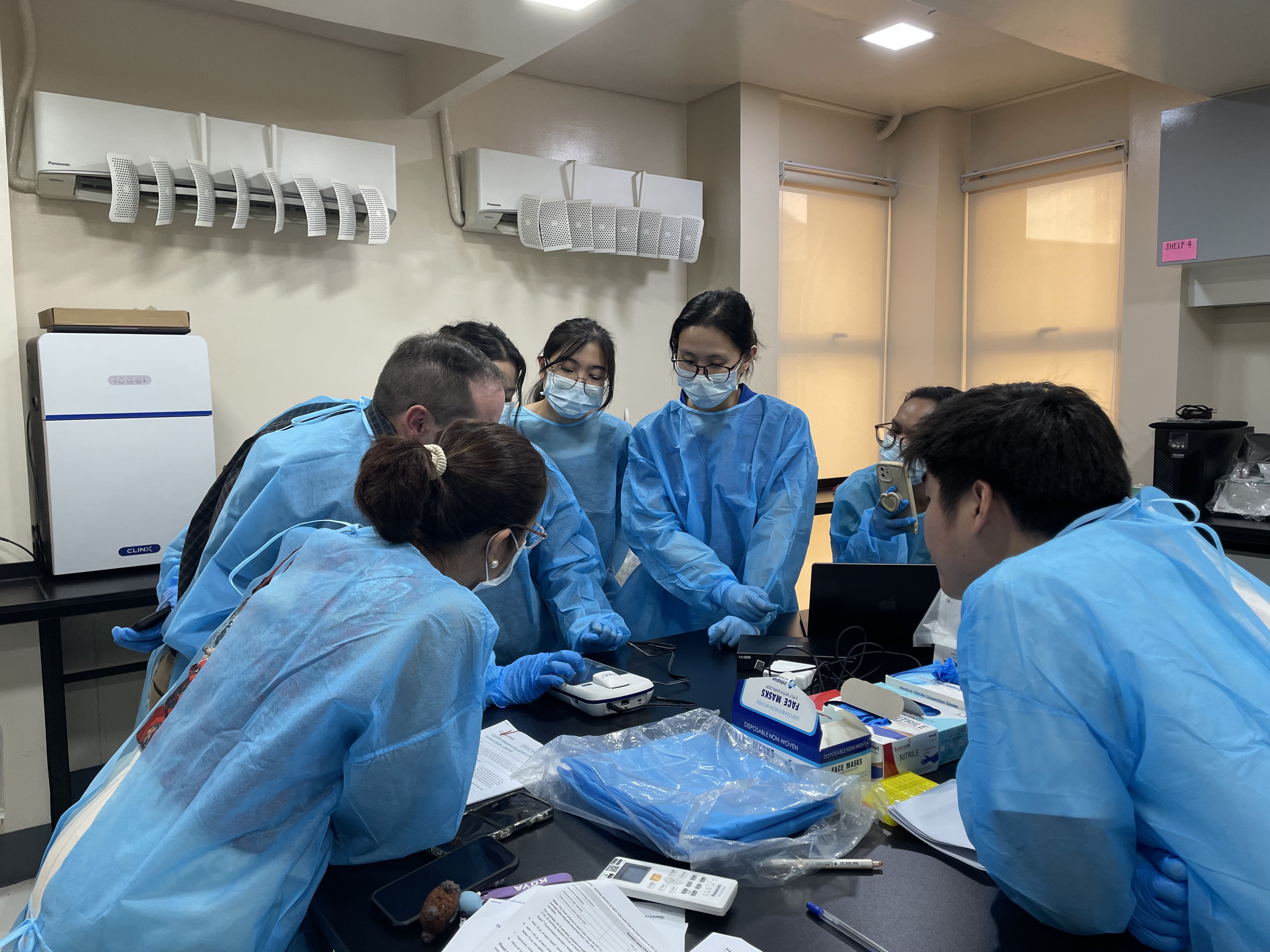
ACRI Junior Research Fellow Samantha Eala Selected for the Wattle Fellowship
The Ateneo Center for Research and Innovation is proud to share that Samantha Eala, Junior Research Fellow, University of Melbourne Master of Public Health student, and Australia Awards scholar, has been selected as a Wattle Fellow. This prestigious fellowship is part of a year-long program designed to foster leadership on global sustainability, emphasising multidisciplinary approaches, transformative leadership, and practical skills development.
The Wattle Fellowship equips students like Samantha with the tools and resources necessary to bring innovative ideas to life and create a positive impact within a community of change-makers. Throughout the program, fellows engage in retreats, workshops, and events, benefit from mentoring opportunities, and implement their own action projects, supported by AUD 5000 for project implementation and leadership activities. This year, the program includes 29 fellows from diverse University of Melbourne faculties, all committed to driving significant change.
Reflecting on her motivations and aspirations, Samantha shared, “I spent part of my 2021 in Siargao where nature was my constant companion—walking through fields of coconut trees, kayaking under double rainbows, and swimming in jellyfish coves. I once went boating around a maze of mangroves close to midnight to see the fireflies. And when I ran my fingers through the water, it would glitter from the bioluminescent plankton. I describe the entire experience as magic.
Witnessing the aftermath of Typhoon Odette made me feel powerless— a place that I loved, utterly devastated, and I couldn’t do anything about it.
But as I saw my friends rebuild their lives, I committed to being a part of that—of preserving and rebuilding the magic that I saw and felt when I first came to Siargao in the rest of my country and, if I’m lucky, the rest of the world.”
Samantha’s Wattle project will focus on climate change, sustainability, and gender. Under the mentorship of Dr. Gelo Apostol, Head of the ACRI Environmental Health Program, Prof. Cathy Vaughan, Director of the Nossal Institute for Global Health and Chair of Global Health at the Melbourne School of Population and Global Health, and Dr. Rebecca Patrick, Academic Convener of the Melbourne Climate CATCH lab, she will examine how women are disproportionately impacted by climate change, often serving as invisible safety nets for family and community resilience. Samantha hopes to use this as a platform to advocate for gender-transformative climate and sustainability action.
The Ateneo Center for Research and Innovation congratulates Samantha on this exciting new chapter as a Wattle Fellow and looks forward to her contributions towards a more sustainable and equitable world.
-
ASMPH, ACRI, and Maxicare ink groundbreaking data partnership to advance smarter healthcare
In a strategic move to push the boundaries of evidence-based medicine, the Ateneo School of Medicine and Public Health (ASMPH), the Ateneo Center for Research and Innovation (ACRI), and Maxicare Healthcare Corporation have formally launched a research and data-sharing partnership designed to transform healthcare outcomes and strengthen medical education in the Philippines. Held at ASMPH last July 21, 2025, the Memorandum of Understanding (MOU) signing brought together leaders from both the academic and healthcare sectors to seal a collaborative effort focused on leveraging data for research, policy development, and improved patient care.
-

ACRI Biotechnology Flagship Program Completes Successful Nanopore Sequencing Training
The Ateneo Center of Research and Innovation's Biotechnology Flagship Program conducted a three-day genomics and sequencing workshop at the Ateneo School of Medicine and Public Health. Participants from research and academic departments received hands-on training with Oxford Nanopore's MinION portable sequencing device, covering lectures and practical experience in DNA library preparation and bioinformatics analysis.

